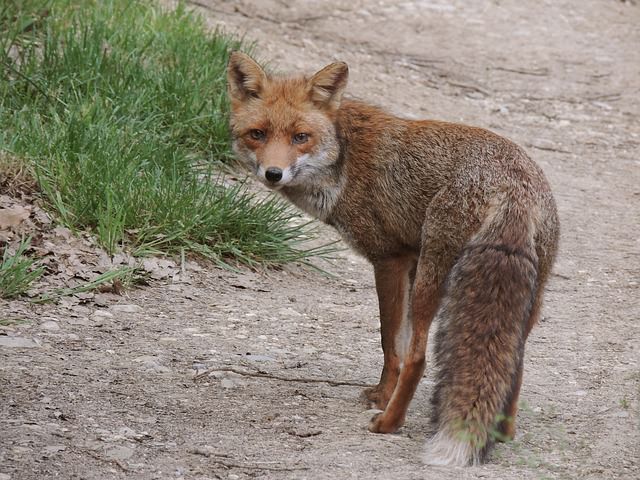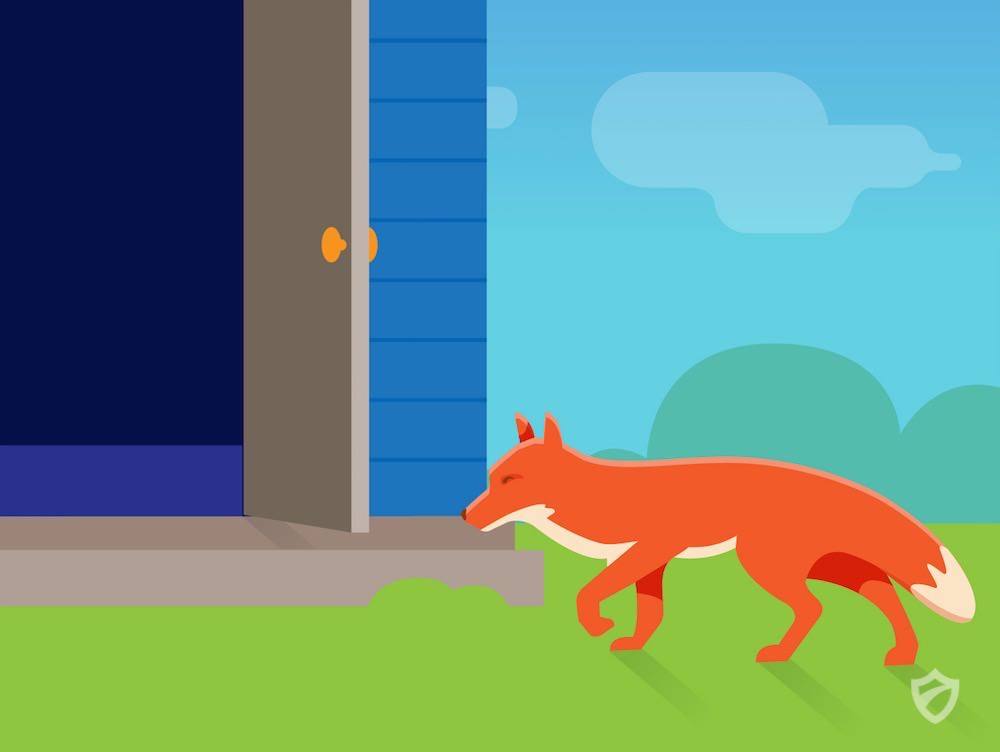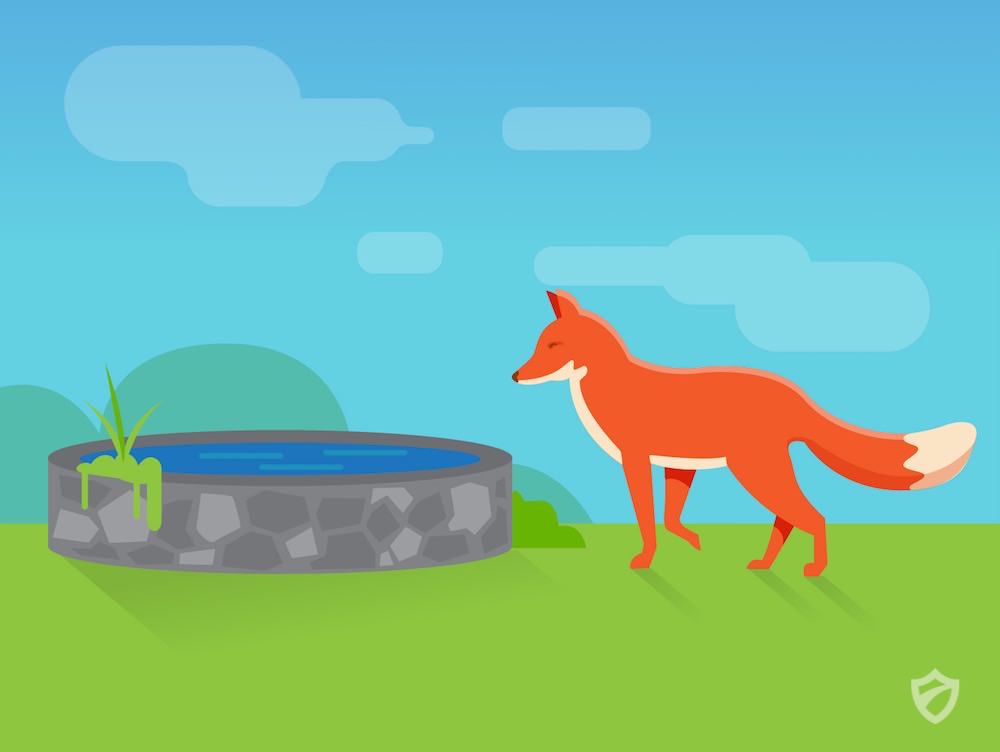Are foxes dangerous?
Risks to humans and our pets

By Sigmund Daughty, Expert Reviewer for Repellent Guide
published: Jul 01, 2016 | updated: Aug 01, 2017
Generally during the day foxes are timid creatures not wanting to be seen and pose little to no danger to us humans. The natural prey of foxes are small mammals and birds and they are scared of humans and anything larger than their typical prey. They also feed on small lizzards, frogs, birds eggs, insects, earth worms and even fish, crabs, mollusks should they be available. Not only meat eaters they will forrage for vegetables and berries as well. Their varied diet is a reason for their success in urban areas where they now share their territory with man. In urban areas they will scavenge on food left out and discarded in rubbish bins normally at night when the streets are empty.
Attacks on humans
There have been reports of attacks on humans, always at night, the worst of which being the attack on the nine month old twins Isabella and Lola Koupparis. They were attacked by a fox that entered into the house through an open door and explored inside upstairs to a bedroom where it injured one child on the face and one on the arm. The wound to the infants arm was serious and described as one of the worst seen by the specialist who treated her.
This was not a isolated attack, other infants have been attacked by inquistive foxes. A lawyer was also bitten upon the ear while she lay sleeping - again the back door of the house had been left open allowing the fox to easily sneak in.

Berries or vegetables, small mammals and birds may be a reason they are attracted to your garden. However should you disturb them don't worry they will retreat immediately should you make sufficient noise. When sleeping always keep your back door locked and you will be safe from any inquisitive foxes.
If you have small children then it's right to be wary of foxes, as a precation always be with them in your garden and keep your doors locked at night.
There are estimates that the London population of urban foxes may be at least ten thousand, so man and fox are meeting much more than they typically would in the countryside. There are reports of some foxes increasing in size, with a 4ft fox being shot and killed in Kent recently. Well fed foxes will of course grow larger then those with a more limited food source. Be careful to keep your rubbish bins secure so as not to attract them.

Danger to your pets
One fox deterrent are dogs, foxes are scared of dogs and will naturally keep away from mans best friend.
As far as your pets being in danger from foxes - this isn't likely unless you have pet rabbits and guinea pigs outside or of course chickens. If your pet's cage is secure then they should be safe from any passing foxes. Rabbits and guinea pigs should be kept in raised hutches. There are reports of ponds being attacked with the loss of Koi carp, should this happen to you try using chicken wire to cover the pond at night.

Another risk to humans apart from bite injury are the diseases they can carry. They are a carrier of rabies and be aware that fox poop contains harmful bacteria. There is a disase called Mange that dogs could potentially pick up from foxes, though it is easily treated. Mange is caused by a parasitic mite called Sarcoptes scabiei, it leads to hair loss and extreme itching for the dog or fox.
Foxes are not normally a threat to cats which are well accustomed to defending themselves. Kittens however would be easy prey for an adult fox so take any precautions you can to keep them safe. Larger dog breeds will be safe but smaller dogs may be a target if they care placid in nature. If your pet is bitten by a fox then it is imperative you take it to a vet for examination and treatment. Foxes with rabies may be abnormally tame, also look for odd and aggresive behaviour and even self-mutilation. Report rabid foxes to your local council immediately as they certainly pose a risk.





